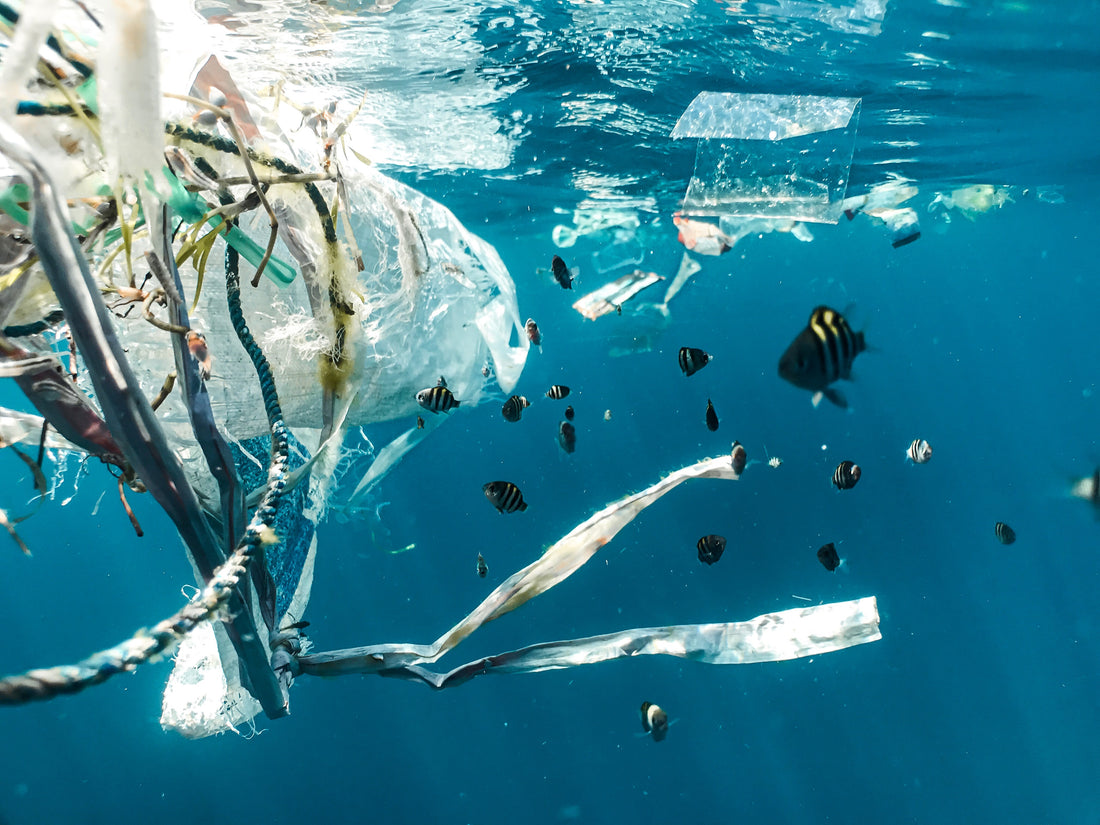Ocean plastic pollution has become so widespread that it’s been found at the deepest point in the ocean - the bottom of the Mariana trench. Whilst discovering new marine species at the oceans lowest depths, scientists found pieces of plastic bags that had wound up there too!
What’s more, 8 million tonnes of plastic is dumped into the ocean each year, that’s the equivalent of one rubbish truck, weighing five tonnes, emptying into the ocean every minute.
These shocking findings highlight how far plastic has touched every part of the planet's oceans, and it has come with consequences. It’s estimated that plastic has been found in 90% of all seabirds and in all sea turtle species threatening significant harm to marine life.
With so much consumption of plastic happening every day, particularly single use plastic, combined with poor recycling facilities, it’s created a scary reality of plastic waste and its impact. A reality that sometimes makes it overwhelming to have any idea of how to reduce our own impact.
We’ve found the top five most common ocean plastic polluters to see where some of this huge amounts of waste is coming from:
TOP 5 MOST COMMON OCEAN PLASTIC POLLUTERS
1. SINGLE USE BAGS
It isn’t too surprising that plastic bags feature in this list but unfortunately when ending up in the ocean, they’re very dangerous for marine life, particularly turtles that can become entangled, stuck in them or mistake them for food causing real risk to their survival.
2. BOTTLES
Plastic bottles are everywhere in daily life and are now everywhere in our oceans. From drinking water to washing up liquid to shampoo & conditioner bottles our homes are filled with them. The scariest part is that each bottle takes up to 450 years to fully break down and in that time also harms marine life who mistakenly consume them. An easy, sustainable solution to this plastic waste in your bathroom is available with Bower collective’s sustainable hair care refills and lifetime dispensers that can be refilled and reused over and over again.
3. STRAWS
Plastic straws aren’t biodegradable and are very difficult to recycle. We’ve seen some big corporations start to ban the use of plastic straws and swap for sustainable alternatives but still 500m straws are being used every single day!
4. FOOD WRAPPERS & CONTAINERS
Food wrappers and containers are thrown away at a huge scale from consuming food, drink and home care items. Like other plastics, they are often difficult to recycle and is why we see so many washed up on our beaches.
5. SYNTHETIC ROPES
Awareness around the harm fishing ropes have on the planet’s oceans is growing and is one of the number one contributors to plastic waste. Every time these ropes are used for fishing, huge amounts of microplastic is released into the ocean. It’s reported that with more than 4,500 active fishing vessels in the UK, anything between 326 million to 17 billion microplastic pieces is estimated to be entering the ocean annually from the UK.
Its evident plastic pollution is a real problem to the health of the planet’s oceans and marine life’s survival. Understanding where some of this plastic comes from in everyday life can highlight ways to cut down impact by exploring reuse alternatives. Reusing items over recycling reduces the risk of waste in circulation that could end up in the planet’s oceans.
Bower Collective's mission is to eliminate single use plastic waste from the home to help create a more sustainable life and planet. On their journey so far, Bower collective have saved over 35,000 tonnes of plastic waste with an innovative reusable packaging system and guaranteed recycling promise. Check out some of the most popular products to start your journey to a sustainable home.
References
https://environment.co/ocean-plastic-products/
https://www.fairplanet.org/story/the-top-10-items-that-are-polluting-our-oceans/
https://www.nationalgeographic.com/environment/article/plastic-pollution
https://ourworldindata.org/plastic-pollution
https://www.wired.co.uk/article/plastic-waste-packaging
